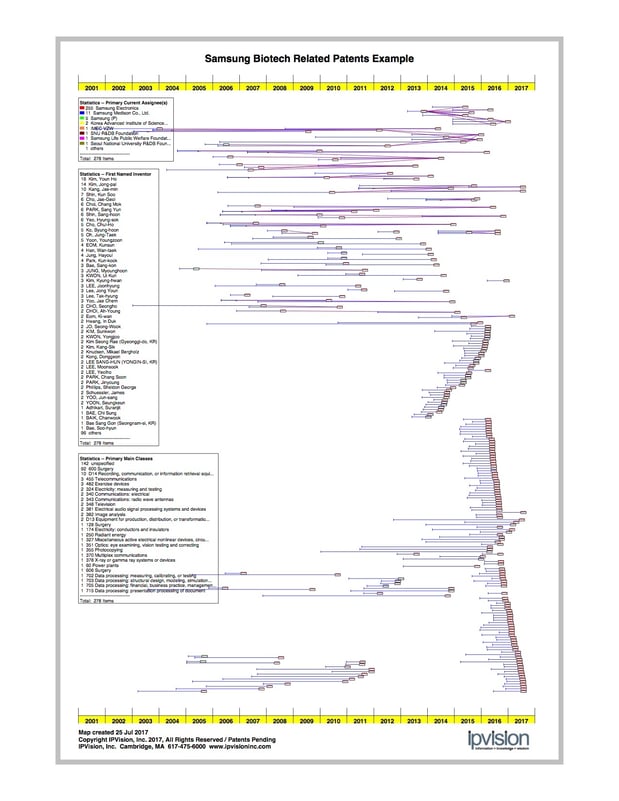 Most people enjoy a good cover band, right? Most of the time, the band is innocuous enough—simply playing some classic hits by bands that would normally charge upward of $50 per ticket for a concert. Sometimes the cover version of a song is so good that it knocks the original off the top spot for good. In most cases, however, the cover band just keeps chugging along, content to attempt songs by just about any recording artist out there.
Most people enjoy a good cover band, right? Most of the time, the band is innocuous enough—simply playing some classic hits by bands that would normally charge upward of $50 per ticket for a concert. Sometimes the cover version of a song is so good that it knocks the original off the top spot for good. In most cases, however, the cover band just keeps chugging along, content to attempt songs by just about any recording artist out there.
In a way, that’s what Samsung is: the cover band of innovation. They don’t so much create disruptive technology that eclipses the original. Instead, the make incremental improvements to technology that’s already available. Just think about it for a moment…
All the Whirlpool Hits
At one point in history, Whirlpool was the top home appliance company available. Lou Upton founded the company in 1911 as Upton Machine Co., Whirlpool grew into a home appliance company with $21 billion in annual revenue.
The first major patent acquisition of note for Whirlpool occurred when Lou acquired the patent for a manual clothes washer from his uncle. That patent, plus a $5,000 investment and a partnership with his brother, led Lou to produce the electronic wringer washer, forever changing the way we do laundry.
Whirlpool grew to acquire and create several other recognizable brands within the home appliance industry, including Maytag, KitchenAid, Jenn-Air, and Amana. In short, the home appliance giant became a household name and a legacy company over the course of a century.
Then Samsung, with their own version of Whirlpool, started eating away at Whirlpool’s market share. An improvement here or there—such as the ability to connect your washing machine to the internet—and a massive marketing scheme, and suddenly Samsung is the band everyone’s talking about.
The Newcomer iRobot Riff
Samsung isn’t just covering the classics. When iRobot introduced the Roomba in 2002, they changed the future of housecleaning. Since then, they’ve fended off copycats right and left, with lawsuits against Bissell, Black & Decker, iLife, Hoover, and Bobsweep. Samsung was also in there, providing the public with their own cover version of the song, along with that familiar riff—a WiFi connection.
Samsung has a few things on its side as it cranks out the POWERbot. For one, their cover version of the original doesn’t really look like the original. The other infringers didn’t even try to mask the fact that they were copying, right down to the design. Instead, the beefed it up a little bit with some features the iRobot doesn’t have, like point cleaning and an onboard digital camera.
The Samsung version of the song also has a higher price tag, which is a small departure from the usual Samsung tune. In many cases, the tech giant will make some small improvements and then undercut the competition on price, with a massive marketing push. In this particular case, there’s a modulation, but it seems to work for them.
Making Money On the IP
For the most part, Samsung’s cover versions are legal enough that they get by without case after case of patent infringement litigation. That’s because, as most people know, a cover band can keep performing the songs of the original band all they want, but they can’t try to make money off of the original—not without licensing the IP. That’s why Samsung usually changes the song just enough.
When it comes to Apple vs. Samsung, that’s not exactly the case. In fact, Samsung—the cover band, remember—started cranking out identical (or nearly identical) technology for both the iPhone and the iPad. When you start making money off of the original song without a licensing agreement, that’s when the gloves come off.
After years of litigation, the two made a pact to stop suing each other. Until January of this year, that is, when the lawsuits cropped up again. In this particular case, Samsung is at a loss, because they can’t incrementally improve upon the iPhone. They just can’t. Even if they could, the brand recognition sells more iPhones every time. For the time being, they don’t seem to have a choice except to keep cranking out their version of the original, but they’ll also continue to pay dearly in court cases.
Changing the Medium
Samsung has made a big name for itself with these moves—improving upon technology, selling at lower costs, and even copying current IP. They’re slowly chipping away at market share for dozens of companies that came first with their innovations. They can because they’re flush with cash and have an excellent marketing and advertising team. It’s a model that’s worked for Samsung well so far.
That’s why the news that they’re entering the pharmaceutical ring was a bit jarring. It’s like a cover band suddenly deciding they want to be a painter—except not even a painter, but a knock-off artist. A painter that provides similar painting styles but for less money. Well, put that way, and it’s really not such a surprising move from Samsung after all.
In fact, anyone watching the biotech IP landscape might not have been surprised either. While the timeline for entering the drug market has been quick, they’ve still been a player in biotech for at least five years. This patent map shows several Samsung patents in the surgical field, which isn’t a big step between tech and pharma.

They’re doing what they’ve always done, in that they’re providing similar products for less money. And the public will do what it’s always done: They’ll eat it up. And any pharmaceutical company that’s surprised to see Samsung enter the market should contact IPVision. We can help you see the big picture, so you’ll know when anyone attempts to enter your industry.
As part of our innovation strategy consulting, we can help you discover the white space within your industry, and also show correlations between your industry and other patents that have been recently granted. Our company was founded by MIT faculty, and they wrote the book on innovation and product commercialization strategy. If you’re worried about cover bands making money off of your songs, give us a call.



